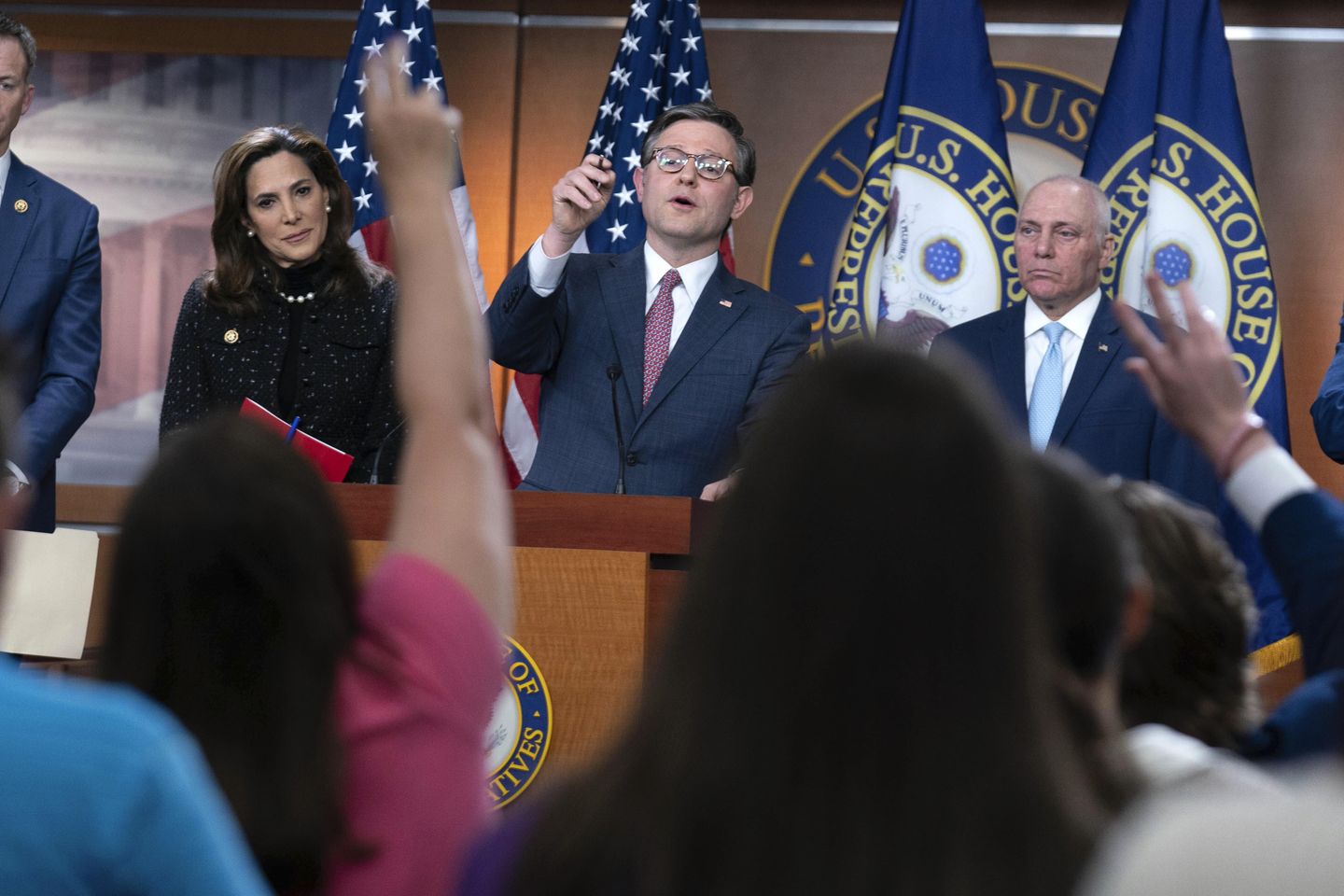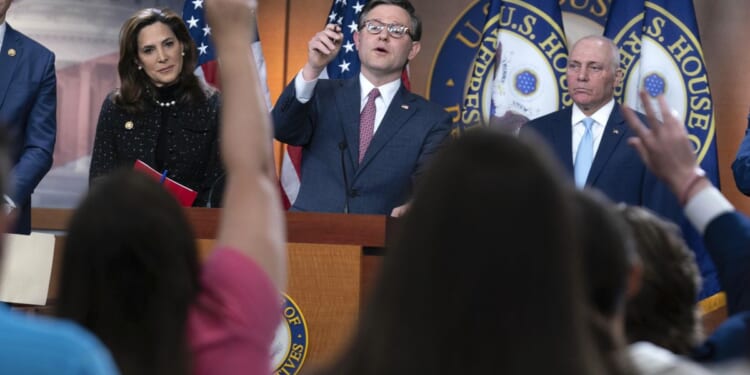
The House on Friday advanced a bill to renew the government’s chief spying powers, recovering from a major hiccup earlier in the week when Republicans tanked the legislation.
A vote is expected later in the day to pass the reauthorization of the hotly-debated Foreign Intelligence Surveillance Act’s Section 702 which allows the U.S. to collect electronic communications of foreigners living abroad.
Without congressional action, FISA’s spy power expires on April 19.
House Speaker Mike Johnson’s retooled version of the bill, which shortens the reauthorization period for Section 702 to two years instead of five, passed the procedural hurdle in a party-line 213-208 vote.
The change succeeded in swaying the 19 conservative holdouts who tanked the bill on Wednesday.
House Rules Committee Chair Michael Burgess, Texas Republican, said lawmakers were putting FISA on a shorter leash.
“The reforms will be reevaluated by the next Congress as to whether or not they’re actually working,” Mr. Burgess said.
Whether the bill passes the House later in the day is up in the air. Section 702, which allows the government to intercept texts, phone calls and emails of foreigners abroad but sometimes scoops up Americans’ data, has become symbolic of the FBI’s spying on the Trump campaign in 2016 and other abuses.
Members will get a chance to vote on a slew of amendments to the bill, including adding a requirement for warrants when the FBI searches for Americans’ data in the FISA database.
The warrant amendment has bipartisan support but faces criticism from national security hawks, who say the move could delay crucial intelligence about terrorist plots and other threats.
The Biden administration and Mr. Johnson, Louisiana Republican, oppose the warrant requirement.
“To hear the administration talk about it, getting a warrant would be the end of the world,” said Rep. Zoe Lofgren, California Democrat.
Lawmakers will also get a chance to vote on amendments from members of the House Intelligence Committee, which privacy hawks warn would expand the powers of Section 702.












